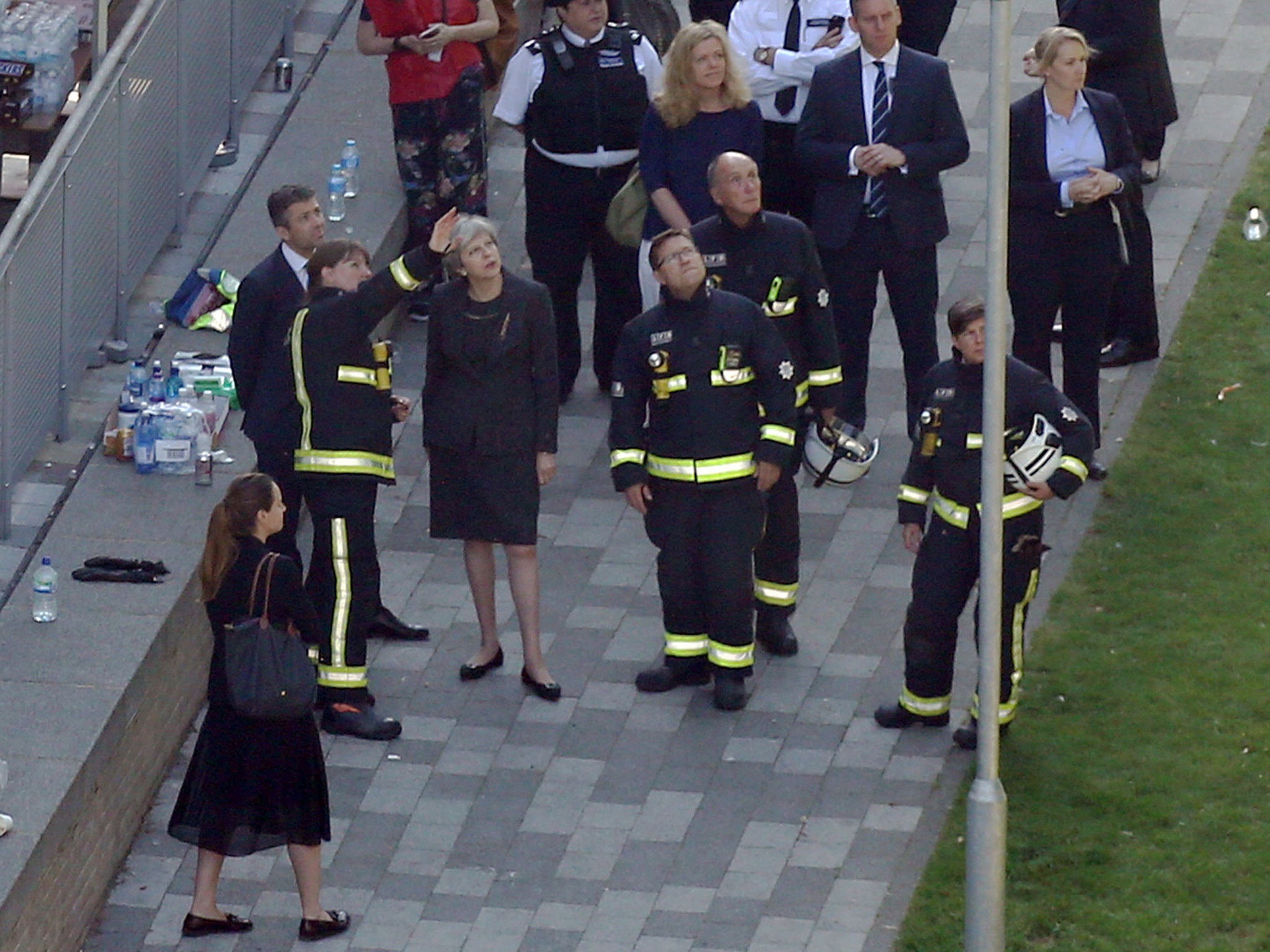Firefighters are angry about Grenfell Tower too – so why are we being attacked?
Only by holding those in power to account, alongside a fundamental change in housing and fire safety, will we achieve justice for the 72 people who lost their lives


I served as a frontline firefighter in the London Fire Brigade for more than two decades before being elected General Secretary of the Fire Brigades Union. I’ve been in the fire and rescue industry for 35 years. As an operational firefighter in inner London, I responded to many serious traumatic incidents, some of which still live with me to this day. But nothing I had to deal with came close to what firefighters faced one year ago as the 24-storey Grenfell Tower burned. It was an unprecedented, catastrophic event that should never have been allowed to happen.
We have all read stories in the media recently about firefighters’ remarkable actions that night: how far up into the building they went to rescue people; how they wrote their names on their helmets for identification purposes if the unthinkable was to happen; how they entered the building with the growing fear it might collapse.
We will have also read some of the outrageous attacks on firefighters: claims that the operation that night was “not very good” and how they let the rules get in the way of saving lives.
I could not disagree more. Firefighters went above and beyond the call of duty that night, saving many lives and doing whatever they could to do so. Every decision taken will be scrutinised by the Grenfell Tower Inquiry but it worries me deeply that the focus is shifting the blame from the people at the top who created the conditions where a fire like this could happen.
Firefighters were not the reason why 72 innocent people were killed in Grenfell Tower. Rather, it was a 40-year drive for deregulation driven by governments of both parties which created a fire safety system not fit for purpose and which allowed a building to be essentially wrapped in petrol.
The election of Thatcher in 1979 heralded a lurch towards deregulation, privatisation and attacks on fire and rescue services. They did this even if it risked more deaths, injuries and property damage. Ministers part-privatised building control in local authorities. This is the system where building plans are assessed for compliance with, among others, fire safety regulations.
The change allowed for a race to the bottom where private, uncertified inspectors could sign off building plans. This system prioritised the needs of business over the safety of buildings and people. The recent Hackitt review into building regulations acknowledges some of these failings.

The deregulation trend continued under the Blair government who in 2003 scrapped the Central Fire Brigades Advisory Council (CFBAC) which had overseen decades of improvement in fire safety measures and operational planning since its creation after the Second World War. This has had a severe impact on the ability of the fire sector to address strategic issues. Take, for example, the issue of cladding fires or the “stay put” policy. No real forum today exists where these issues can be addressed. The problem would rest with individual fire services despite clearly being a national issue.
Since 2010, the process of deregulation has escalated. David Cameron’s “red tape challenge” to cut what he saw as unnecessary and burdensome regulations ran down the importance of public safety. Ministers failed to improve building regulations and instead promoted voluntarism and self-regulation.
These developments over the decades created the environment where Grenfell Tower was allowed to burn. We want to see prosecutions where appropriate. That means the business owners and those who failed to keep their premises safe.
A year after the devastation, nobody has been arrested despite the obvious fact that Grenfell was a deathtrap. But government ministers, past and present, must also be held to account for overseeing a deregulation agenda that failed to keep people safe in their homes – a basic expectation of public authorities in a civilised society. Only by holding those in power to account, alongside a fundamental change in housing and fire safety, will we achieve justice for the 72 people who lost their lives at Grenfell Tower.
This will be a very difficult day for everyone who lost a loved one in the fire, everyone whose home was destroyed and lives upturned. It will also be a difficult day for Grenfell firefighters too. Our focus from here onwards will be to achieve real justice for Grenfell.
Matt Wrack is the General Secretary of the Fire Brigades Union
Join our commenting forum
Join thought-provoking conversations, follow other Independent readers and see their replies
Comments
Bookmark popover
Removed from bookmarks